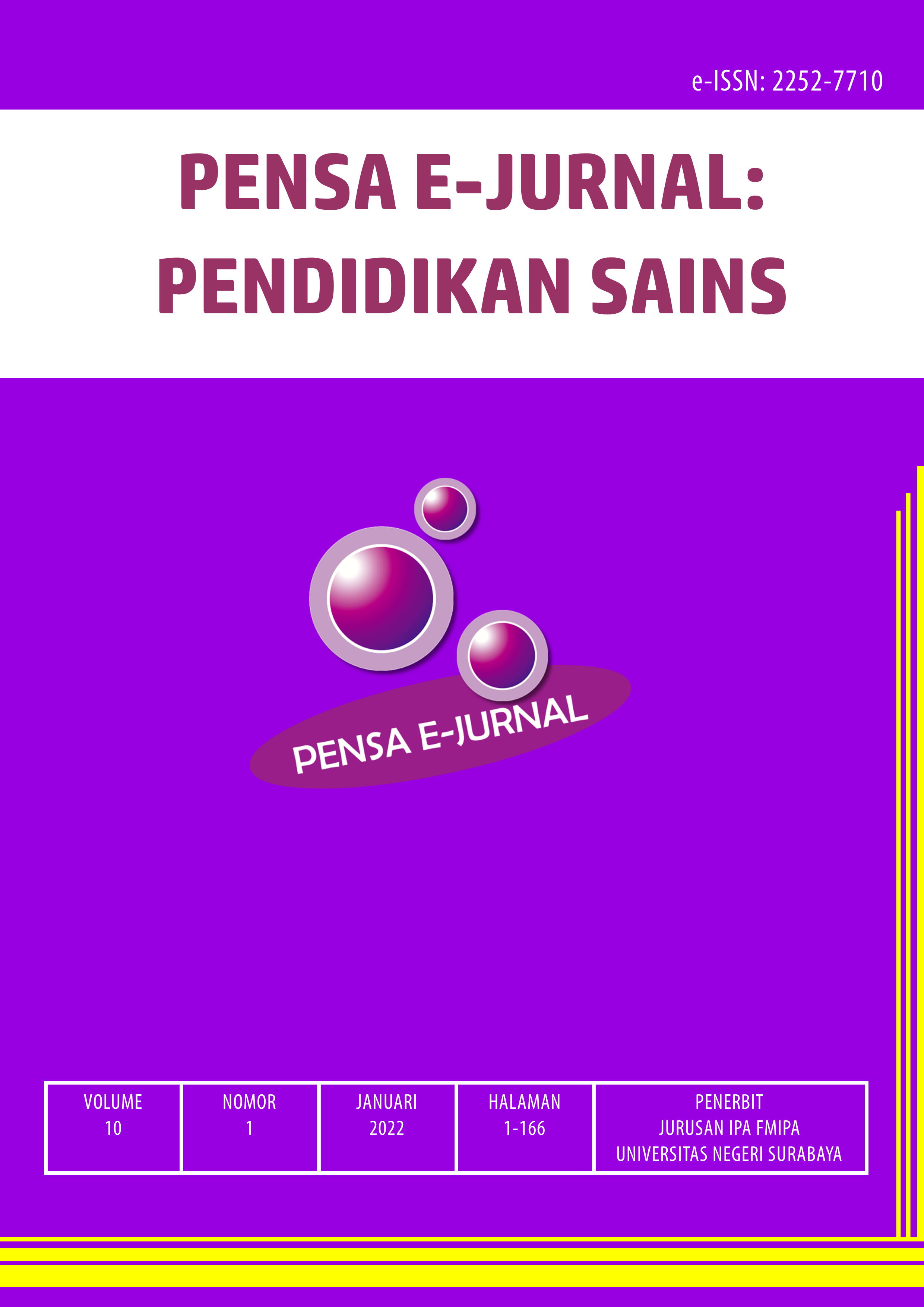PEMBELAJARAN IPA DENGAN MODEL INKUIRI PADA MASA PANDEMI COVID-19
DOI:
https://doi.org/10.26740/pensa.v10i1.41361Keywords:
science learning, inquiry model, onlineAbstract
This study aims to describe the implementation of science learning with an inquiry model during the Covid-19 pandemic. This study uses a qualitative method with a case study approach. The research instruments consist of interview instruments and student response questionnaires. Data collection techniques used were interviews and documentation studies and were supported by the distribution of student response questionnaires. The results showed that science learning with an inquiry model during the Covid-19 pandemic for global warming materials reached 42,86%, light materials and optical devices reached 57,14%, and food additives material reached 57,14%. Based on the results of the study, it shows that the implementation of science learning with the inquiry model has not been carried out well when online at SMP Negeri 13 Gresik. Factors that influence the non implementation of science learning activities using the inquiry model when online are the lack of facilitation of RPP and LKPD which contain student inquiry activities well when online. However, the results of the analysis of student responses indicate that students feel happy and agree if learning science with the inquiry model is reapplied because students can play an active role during online learning activities. Therefore, this research is used as input for science teachers to adjust learning tools and develop LKPD that supports learning activities with online inquiry models.
Downloads
Downloads
Published
How to Cite
Issue
Section
 Abstract views: 313
,
Abstract views: 313
, PDF Downloads: 503
PDF Downloads: 503

















